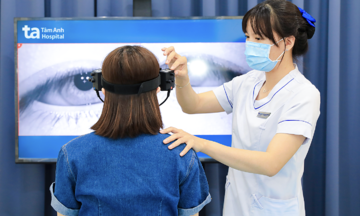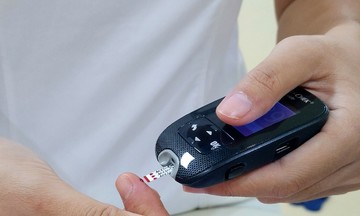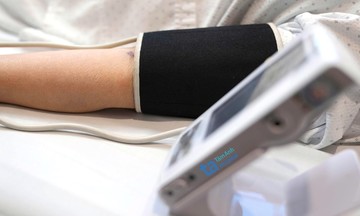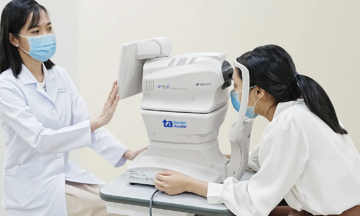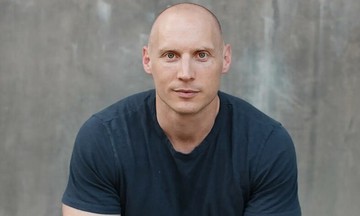Have you ever suddenly realized you're not young anymore? A sudden hot flash, a creaking knee, or a new ache? Facing the first signs of middle age can be challenging.
Dr. Anita Skariah, an internal medicine specialist at UNC Health, says this stage of life can be difficult. Mentally, you might feel 10 or 20 years younger, but your body may tell a different story. Adjusting some habits is necessary, and you'll discover new energy that brings joy to the decades ahead.
Time marches on, but you can take control to make your 40s, 50s, and beyond healthy and happy.
Diversify your exercise routine.
In your 20s and 30s, you may have enjoyed high-intensity activities like running or HIIT. As you enter middle age, it's important to incorporate exercises that are gentler on your joints.
Dr. Skariah recommends cross-training for runners in their 40s. Swimming and cycling are ideal low-impact options.
Don't neglect stretching for flexibility and weight training to build muscle. Both are key to long-term mobility.
"As we age, we lose muscle mass. So, strength training is essential to preserve and build muscle," Dr. Skariah emphasizes, adding that muscle is key to maintaining an efficient metabolism.
If you're new to exercise, start with walking.
"Walking is an investment in our health as we age," Dr. Skariah says. Studies show it's an effective strategy for preventing dementia by increasing blood flow and delivering nutrients to the brain. It also helps maintain musculoskeletal flexibility.
Control your diet and alcohol intake.
Healthy eating is always important, but middle age is a crucial time to evaluate if your diet supports your lifestyle and health goals.
As you enter this phase, your metabolism naturally slows, making it easier to gain weight. This increases the risk of chronic diseases like heart disease, diabetes, kidney disease, and even some types of cancer.
Evidence clearly shows that the Mediterranean diet (prioritizing fresh fruits and vegetables, whole grains, olive oil, lean meats, and fish) and the DASH diet (low in sodium) are optimal for middle age. Many simple recipes are available to help you get started.
Remember that small changes can make a big difference. You can start by cutting back on ultra-processed foods (often high in salt, fat, and sugar) or adding new vegetables to your weekly menu. Consult a nutritionist for your specific needs.
This is also an ideal time to reassess your alcohol consumption.
Dr. Skariah warns that the liver's ability to metabolize alcohol declines with age. While some once believed a glass of wine could be beneficial, new evidence suggests otherwise, especially as more data emerges about the long-term effects of alcohol, such as the link to colorectal cancer.
 |
Evidence clearly shows that the Mediterranean diet and the DASH diet are optimal for middle age. Photo: UNC Health Talk |
Evidence clearly shows that the Mediterranean diet and the DASH diet are optimal for middle age. Photo: UNC Health Talk
Prioritize sleep.
Sleep is crucial for overall physical and mental health. However, getting quality restorative sleep becomes more difficult with age.
Part of the reason is due to natural physiological changes: Perimenopause, with its hot flashes and night sweats, can disrupt sleep, while the risk of sleep apnea also increases, directly affecting rest quality.
Years of bad habits can also start to take their toll. An evening cocktail might offer immediate relaxation but can disrupt deep sleep cycles. Consuming caffeine in the late afternoon can leave you tossing and turning for hours, even after the initial alertness wears off.
Dr. Skariah explains that our brains are like computers that need to be properly "shut down." Many of our current habits inadvertently interfere with this shutdown process and blur the body's sleep signals.
If you regularly struggle to sleep, it's time to "retrain" your brain on how and when to sleep by returning to the basics: Maintain a consistent sleep-wake schedule, establish a relaxing pre-sleep routine, and ensure your bedroom is quiet, cool, dark, and free of electronic devices.
Invest time in yourself.
This can be one of the busiest times in your life: balancing career, relationships, responsibilities to children and aging parents, while facing the psychological shifts of middle age.
Dr. Skariah acknowledges that you might be pushing yourself, multitasking, and caring for everyone around you. Remember that we can only give when we are full of energy. You can't empower others if your own cup is empty. That's why self-care isn't selfish.
The good news is that self-care can be combined with other health goals. A morning walk or a healthy, enjoyable meal not only improves physical health but also significantly boosts energy and mood.
This is also an ideal time to explore new activities or skills. As children become more independent, taking a class or pursuing a new hobby can bring joy and meaning.
Struggling with identity and confidence in middle age is normal. If you notice significant changes in your stress levels or mood, seek professional support.
"It's important to recognize when you no longer feel like yourself, when you can't accomplish the things you want and need to do," Dr. Skariah emphasizes, advising you to share these thoughts with a trusted healthcare professional.
Establish a regular relationship with your primary care physician.
You don't have to face the changes of middle age alone. Your primary care physician can help you manage age-related issues like menopause or prostate health.
Dr. Skariah says there are more options than ever for women experiencing hot flashes, mood swings, and other menopausal symptoms. Men may also experience waking up multiple times at night to urinate, a weak stream, or difficulty urinating. Fortunately, effective interventions exist for these issues.
Your physician will recommend cancer and chronic disease screenings based on medical guidelines and your individual risk factors. More importantly, they'll be a reliable listener to the new experiences you're facing.
"We can help you distinguish between normal signs of aging and symptoms that warrant further investigation," Dr. Skariah emphasizes.
My Y (According to WRAL)



